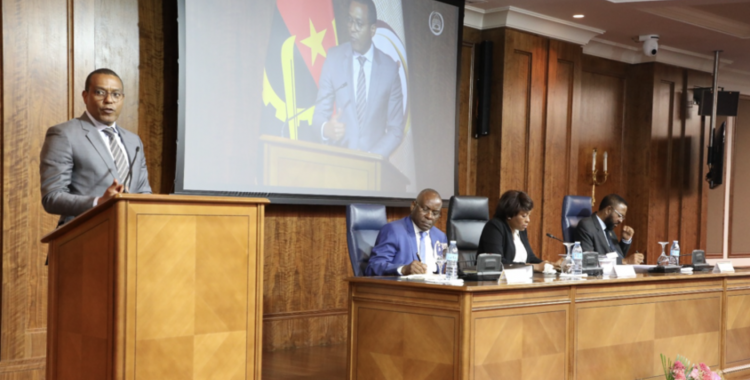At the meeting, which served to "outline the budgetary priorities of the productive sector" for next year, the Minister of State "recognised the increase in agricultural production throughout the country, with a tendency to intensify" in 2025.
Quoted in a parliamentary statement, to which VerAngola had access, Lima Massano said that Angola "is producing more", but is still "below" its potential.
"The country is producing more, but we are far below our potential, both to meet internal needs and for exports. Anyone who travels around the country can see production areas everywhere", he said, pointing to the increase in production, especially agricultural production, as a response to the "continuous growth of the national GDP [Gross Domestic Product]".
Thus, to speed up the production process, the minister advocated the implementation of some measures, such as "increasing the supply of food products, which is essential, and mapping a network of silos in the country for the storage and preservation of food until it reaches the consumption areas", the note reads.
He also mentioned the Angolan Active Venture Capital Fund (FACRA), which aims to contribute to diversifying the economy by investing in micro, small and medium-sized companies to "catalyze national production in the most varied sectors of the real economy".
Regarding this fund, Massano explained that "it does not grant loans, but rather invests in the capital of companies".
The fight against hunger was another topic addressed by the minister. According to Lima Massano, there are approximately one hundred companies related to logistics, "which in the last year and a half FACRA has invested in, that is, it has invested capital, with more companies operating in the collection of products from production areas to consumption areas".
He said he hoped that next year, with the increase in production, hunger would be combated.
As for initiatives to support national production, the Minister of State for Economic Coordination also highlighted support for family farming, "counting three million households living in the countryside and the existence of more than 8000 rural schools, which are teaching families to make the most of every piece of land available".
Furthermore, support for financing through FADA, the "Agrarian Development Support Fund, responsible for granting financial resources to actions aimed at the development of peasant food production and agribusiness", was also highlighted.
Showing optimism, Lima Massano assured that in 2025 there will be "more production than in previous years, with inputs being safeguarded for the start of the agricultural year and other projects to support the opening of production areas and mechanisation means", the statement reads.
The minister also stressed that "with the increase in production and, consequently, exports, the country will have a greater chance of gaining access to foreign currency and consolidating its monetary sovereignty, which it has been building since it became independent".
The Minister of Agriculture and Forestry, Isaac dos Anjos, also spoke on the occasion, acknowledging that there are difficulties, but he appealed for the efforts of farmers to be valued, as they "continue to contribute to mitigating the problem of hunger".
He also advocated the modernization of agricultural equipment, and highlighted, among the projects underway in the sector, "the relaunch of cocoa cultivation in Cabinda, whose production could exceed 700 thousand tons by 2026".
With the guidance of the chairwoman of the Economy and Finance Commission (5th CTE), Aia-Eza Troso, the session served not only to address issues related to the agriculture sector, but also topics related to other sectors such as transport, finance, energy and water, etc.







